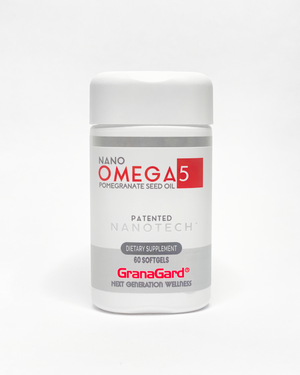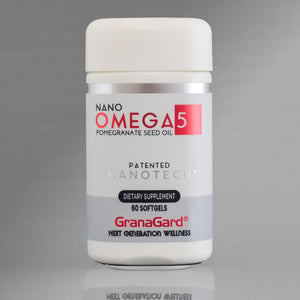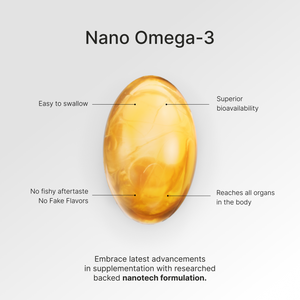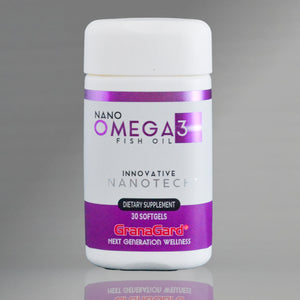Antioxidants are substances that neutralize free radicals, which produce oxidative stress. Oxidative stress is a factor involved in the development of many chronic degenerative diseases, from diabetes to Alzheimer's, and also accelerated aging. Therefore, by taking antioxidants, we help prevent a large number of diseases and slow down aging. Some people have a greater need for them. Do you want to know if this is your case? Keep reading...
The function of antioxidant supplements is to help slow down and eliminate the action of free radicals, and we say help, because that function would initially belong to our endogenous antioxidant system (internal), which is made up of enzymes produced by our own body and substances we acquire through the diet, (What are the best antioxidant foods?) such as vitamin C, vitamin E, and polyphenols from fruits and vegetables.
Free radicals are molecules resulting from normal metabolism, and as we mentioned, they are neutralized by our internal antioxidant system. But there are cases where other sources of free radicals like radiation, smoking, stress, environmental pollution, exercise, sleeping poorly and insufficiently, (6 powerful reasons to sleep well) increase the amount of free radicals, thus overwhelming our internal antioxidant system.
Another aspect we must consider is age. From the age of 40 to 50 the production of antioxidant enzymes declines, leaving us more exposed to oxidative stress (Oxidative stress: myth or reality?), which is the condition where the balance that should exist between oxidation and antioxidation, (What are antioxidants in simple words) is disrupted by a greater presence of oxidizing agents (free radicals) or a lower amount of antioxidant substances (enzymes).
If this balance exists naturally, then we don't need antioxidant supplements. But, we have seen that maintaining this balance requires a very particular lifestyle with very healthy habits, like those of centenarians living in the blue zones of our planet.
How to know if I need antioxidants
There are several questions that will help us understand our need for protection against oxidative stress. These are some of them: age, am I over 40 years old?; diet, do I consume a diet low in antioxidants, with many processed foods?; do I go to the gym several times a week?; do I sleep less than 7 hours or wake up frequently during the night?; am I a smoker?; do I live in a polluted environment?; am I stressed?; am I overweight or obese?; (Oxidative stress and obesity) do I have a systemic disease such as diabetes?...(Oxidative stress can cause Type 2 diabetes) Answering YES to any of these questions would indicate the need to supplement with antioxidants.
When should I start protecting myself with antioxidant supplements
The question When? is very relevant because some of the aspects we have just seen could have a positive response in younger people, say 20 or 30 years old. In them, the production of endogenous antioxidant enzymes responds better to the level of free radicals, although, if the answer is positive for practically all the questions, they would also have to consider the use of an antioxidant supplement.
As we said earlier, it's about maintaining the balance between oxidation and antioxidation. The goal is not to eliminate free radicals; at controlled levels and in balance, they have important functions.
Free radicals are necessary for the body. Just to mention a fundamental function in the immune system, some of its cells produce hydrogen peroxide, which is a free radical; however, they use it to facilitate the attack and destruction of bacterial or tumor cell membranes.
How much antioxidant should I take

An excess of antioxidants leading to massive neutralization of free radicals could interfere with important functions in our body like the one mentioned for the immune system. It is not advisable at all to consume several antioxidant supplements at the same time, and the selected one should be taken at the recommended dose, without exceeding it.
Which antioxidant should I take
Not all antioxidants are the same; they mainly differ in their solubility and mechanism of action. Some antioxidants are liposoluble, meaning they dissolve in fatty but not aqueous media, while others are water-soluble, meaning they dissolve in aqueous but not fatty media. This characteristic allows them to act in one medium or another, and we must remember that our body has different tissues with a predominance of fat or water, but free radicals are found in all of them.
Another characteristic is their mechanism of action, which can be simple or multiple. The simple mechanism is to neutralize the free radical by giving it the missing electrons. But others have a more complete action, because in addition to doing the above, they multiply their antioxidant power by stimulating the production of endogenous antioxidants.
The size of the molecule can be another limitation for effective antioxidant action. We must remember that in our body there are organs like the brain (where a large number of free radicals are generated), which are protected by a membrane such as the blood-brain barrier, which prevents most substances in the blood from coming into contact with the brain.
Most antioxidants do not cross it. Nano Omega 5 from GranaGard® (What are the benefits of Omega 5) is a powerful natural antioxidant extracted from pomegranate seeds. Its antioxidant mechanism of action is multiple. Through nanotechnology (What is Nanotechnology in simple words) Omega 5, which in its natural state is liposoluble (dissolves only in fat), is transformed into a nanoemulsion which gives it two huge advantages: now it can dissolve in both fatty and aqueous media, and its new nanometric dimension allows it to cross barriers like the blood-brain barrier. The best option to the question Which antioxidant should I take? is Nano Omega 5 from GranaGard® the new generation of antioxidants. If you need protection, start today with Nano Omega 5 from GranaGard®.





